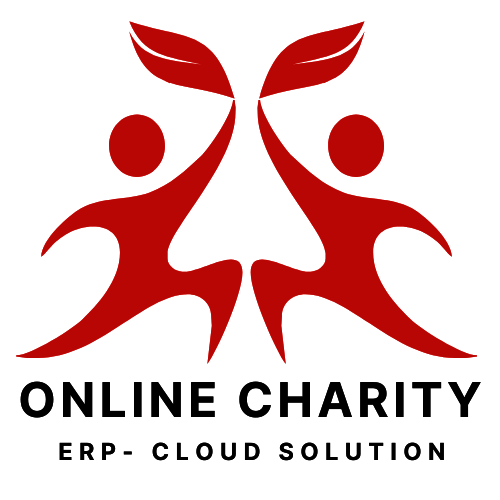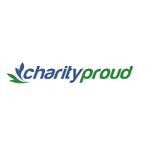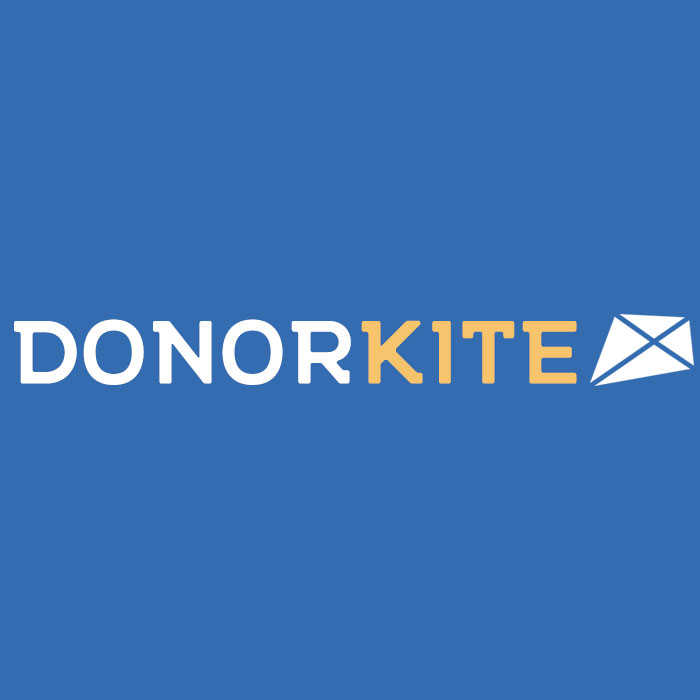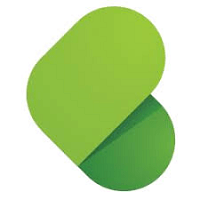What Is Donor Management Software?
Donor management software is a potent instrument made to assist charities and non-profits in effectively and efficiently managing their fundraising initiatives. For every organization that depends on donations to fund its operations, it is an essential element. By streamlining the donor management procedure, this software frees up non-profits to concentrate on their mission and donor relationships.
Fundamentally, donor management software serves as a central repository for donor data, including contact information, past donations, and preferred methods of communication. Multiple team members can readily access and update this data, guaranteeing that all donor information is correct and current. The capacity to track and manage donations is one of the main functions of donor management software. It makes it simple for groups to track pledge payments, create receipts, and log contributions.
This reduces the possibility of mistakes or missing data and does away with the necessity for human record-keeping. Additionally, non-profits can divide up their donor base according to several parameters, such region, frequency, or donation size, with the help of donor management software. This makes it possible to communicate with contributors in a targeted and personalized way, which can strengthen connections and boost participation.
This program is a flexible tool for non-profits of all sizes because it can also help with volunteer coordination and event administration. In addition to tracking volunteer hours and tasks, it can help expedite event registration and ticket sales. The reporting and analytics features of donor management software are yet another important benefit.
It can produce informative reports on campaign performance, donor trends, and fundraising objectives, offering useful information to enhance donor outreach and retention tactics. Features, cost, and compatibility with other tools your company may employ are all important factors to take into account when choosing a donor management software. To guarantee a seamless and effective donor management experience, look for a user-friendly interface, safe data storage, and dependable customer service.
What Are The Recent Trends In Donor Management Software?
Keeping up with donor management is essential for success in the dynamic world of nonprofit organizations. The market for donor management software is continuously evolving to satisfy the demands of organizations due to the development of technology and shifting donor expectations. To make an informed choice as a prospective buyer, it's critical to keep up to date on the most recent developments in donor management software.
The following are a few current developments in donation management software:
1. Cloud-Based Solutions: More NGOs are using cloud-based donor management software as a result of the trend toward remote employment and the requirement for accessibility. This removes the need for a physical server and offers a more affordable option by enabling real-time collaboration and data access from any location.
2. Mobile Accessibility: As smartphones and other mobile devices become more popular, contributors anticipate being able to communicate with organizations and make donations while on the go. Mobile-friendly donor management software makes it easier for organizations to reach a wider audience by enabling them to interact with contributors through mobile-friendly platforms.
3. Software Integration: Donor management software is no longer an isolated application. Organizations are searching for software that can interact with other systems, such accounting, email marketing, and event management software, in order to increase efficiency and streamline procedures.
4. Artificial Intelligence (AI): In recent years, donation management software has increasingly included AI. AI may help companies make better decisions and build closer relationships with contributors by identifying giving trends, personalizing donor engagement, and improving data insights.
5. Donor Experience: Donors want to know that the organizations they support recognize and appreciate them. With features like donor portals, individualized communications, and simple online donation alternatives, donor management software is increasingly putting more of an emphasis on fostering a happy donor experience.
6. Data Security: Nonprofits are very concerned about data security due to the rise in cyberthreats. Donors can now donate online with confidence thanks to donor management software's sophisticated security features and policies that safeguard private donor data. Nonprofits can select donation management software that meets their specific requirements and advances their objectives by keeping these trends in mind. Organizations may strengthen their relationships with contributors, enhance their fundraising efforts, and advance their cause with the help of the appropriate software.
Benefits Of Using Donor Management Software
Any organization hoping to enhance fundraising efforts and efficiently manage its donor database must have donor management software. Numerous advantages provided by this all-inclusive software can help to improve donor engagement and donations by streamlining procedures and saving time and money. We will go over the main advantages of adopting donor management software in this buyer's guide.
1. Centralized Donor Database: You may store and arrange all donor data in one place with donor management software. This makes it simpler to keep track of donor interactions, contributions, and communication history by doing away with the need for numerous spreadsheets and manual data entry.
2. Effective Communication: You may divide up your donors according to a number of factors, including demographics, interests, and past donations, using donor management software. This enables you to customize your correspondence and have more intimate and significant conversations with your contributors.
3. Simplified Fundraising: By providing tools like online gift forms, event management, and automated donation reminders, donor management software streamlines the sometimes difficult and time-consuming process of fundraising. In addition to saving time, these tools aid in boosting donations and retaining donors.
4. Data Analysis And Reporting: Organizations can learn more about their fundraising endeavors by utilizing the comprehensive reporting and analytics capabilities provided by donor management software. These reports can offer useful details on campaign success, donor trends, and areas that need work.
5. Improved Donor Relationships: Donor management software contributes to better donor relationships through effective communication and a centralized donor database. It enables you to maintain contact with your supporters and give them a smooth giving experience, which eventually increases their support and loyalty.
6. Enhanced Efficiency And Cost Savings: Donor management software saves time and money by automating a lot of tedious tasks. Additionally, it eliminates the need for expensive paper-based procedures, which makes it an affordable option for businesses of all kinds.
7. Scalability: Donor management software may readily grow with your demands as your company and donor base do. Without having to deal with the inconvenience of moving to a new system, you can add more features and functionalities as needed.
Important Factors To Consider While Purchasing Donor Management Software?
To select the greatest choice for your business, there are a number of crucial elements to take into account when buying donor management software. Your fundraising efforts, donor relationships, and administrative responsibilities can all be significantly improved with the help of the appropriate donor management software. Therefore, the following are the main considerations while choosing donor management software:
Features And Functionality: First and foremost, determine the unique requirements of your organization and confirm that the donation management software offers all the features and functionalities you need. Effective fundraising, for example, requires features like donor data management, segmentation, and online donation processing.
2. Integration: Whether the donor management software can easily interface with your current systems, including accounting software, email marketing tools, or event management software, is an important consideration. This will prevent data duplication and save a significant amount of time.
3. User-Friendliness: Both your employees and donors should find the donor management software easy to use and intuitive. Donors may be deterred from utilizing the site by a complicated and unclear interface, which will simply increase workload.
4. Technical Support And Training: To guarantee a seamless transition and continuous assistance for your staff, look for donor management software that provides technical support and training materials around-the-clock.
5. Cost: Just like with any purchase, you should think about how much the donor management software will cost and if you can afford it. Remember to account for any extra expenses for implementation, training, and continuing support.
6. Customization: Selecting donor management software that can be tailored to your particular needs is crucial because every organization has different demands and procedures.
7. Security And Data Protection: Donor data must be kept safe at all costs because it is sensitive. Verify that the donor management software you select has strong security features in place to protect your information.
8. Reputation And Reviews: Read reviews from other organizations that have used the donor management software and conduct your own investigation. Its repute and dependability will become clearer to you as a result. You may choose the best donation management software for your company by taking these important elements into account. Before making a purchase, take the time to carefully evaluate and compare a number of possibilities because every firm has different demands.
What Are The Key Features To Look For In Donor Management Software?
The main goal of donor management software is to make managing donors, donations, and fundraising initiatives easier and more efficient. However, choosing the best solution might be overwhelming for enterprises due to the abundance of options accessible in the market.
The following crucial characteristics of donor management software should assist you make your choice:
1. Donor Database Management: The database is the central component of every donor management program. It should provide a strong and safe platform for storing donor data, including contact information, past donations, preferred methods of donating, and preferred methods of communication. Additionally, it should enable donor data segmentation and filtering for individualized communications and focused campaigns.
2. Fundraising And Donation Tracking: Organizations should be able to track donations and fundraising objectives with the use of effective donor management software. It should enable businesses to design personalized donation forms and provide a variety of payment methods, including bank transfers, credit cards, and offline payments. It should also offer tools for sending thank-you notes to funders, creating reports, and monitoring the campaign's success.
3. Event Management: To assist organizations in organizing, publicizing, and overseeing events, a lot of donor management software also has event management tools. Creating event pages, allowing online registration and ticket sales, keeping track of attendees, and monitoring event costs and earnings are a few examples of what this could include.
4. Tools For Communication And involvement: Establishing enduring bonds with contributors requires effective communication and involvement. Seek out donor management software that provides features for social media integration, mass emailing, customized messaging, and donor surveys. By providing information about their influence and future possibilities to support the cause, these features can assist organizations in communicating with their donors.
5. Integration And Customization: The organization's other software and tools, including email marketing, accounting, and CRM systems, should all work in unison with the donor management software. Time can be saved and procedures can be streamlined with this integration. Additionally, search for software that can be customized to meet the unique requirements and branding of your company.
6. Reporting And Analytics: To assess the effectiveness of fundraising initiatives and pinpoint areas in need of development, comprehensive and up-to-date reporting and analytics are essential. Reports on campaign performance, donor retention rates, donation history, and other topics should be generated using donor management software. Additionally, it should offer visualization capabilities to facilitate data analysis for enterprises.
7. User-Friendly Interface: Lastly, the donation management software should have an easy-to-use interface that is simple to use and intuitive. It should be possible for organizations to use the features and complete activities without requiring a lot of training. For the program to function flawlessly across many devices, it should also have a responsive design.
Why Do Businesses Need Donor Management Software?
Keeping a solid and devoted donor base is essential for nonprofit organizations' survival and expansion in the fast-paced, fiercely competitive corporate world of today. Businesses can use donor management software to organize their fundraising activities and create deep connections with their donors.
Effective data management is one of the primary reasons why companies use donor management software. Organizations may effortlessly monitor and retrieve donor data, such as contact information, donation history, and preferences, by utilizing a single database. In addition to saving time and money, this enables companies to tailor their communication and outreach tactics, increasing the likelihood that their fundraising efforts will be successful.
Additionally, donor management software provides extensive analytics and reporting features that let companies learn a lot about their donor base. Finding patterns, trends, and preferences in this data can be used to develop fundraising campaigns that are both focused and successful. These reports can also assist organizations in assessing the effectiveness of their fundraising initiatives and in making informed decisions for upcoming campaigns.
Additionally, donor engagement and retention greatly benefit from donor management software. Businesses may more easily engage and communicate with their contributors thanks to the software's features, which usually include online donation capabilities, event management, and donor communication tools. This improves the likelihood of future gifts and ongoing support, in addition to strengthening the bond between the company and its supporters.
The capacity of donation management software to automate administrative processes is another important benefit. It might take a lot of time and effort to complete tasks like tracking donations, writing thank-you emails, and generating tax receipts. These chores can be automated using donor management software, giving companies more time to concentrate on other crucial areas of their operations.
How Much Time Is Required To Implement Donor Management Software?
The size of your business, the complexity of your data, and your customization requirements are some of the factors that may affect how long it takes to establish donor management software. It usually takes a few weeks to several months to finish the installation process. The first step in implementing donation management software is data migration. This could take a while, depending on the amount and caliber of the data.
Making sure the data is clean and properly mapped is essential to avoiding issues during the implementation process. The software needs to be set up to your company's specifications once the data migration is complete. This means creating custom fields, changing system settings, and setting up user permissions. This process could take many weeks because it involves understanding your company's processes and ensuring that the software is tailored to your particular requirements.
Another crucial element of implementing donation management software is training. You must teach your staff how to use the program effectively if you want them to get the most out of it. This entails learning how to run reports, enter and maintain data, and utilize the software's various features. The length of the training can be influenced by the complexity of the software and the number of users.
In addition to the initial setup, ongoing maintenance and upgrades may be required. This means backing up data, fixing any issues, and performing regular software upgrades. This ongoing maintenance might be delegated to a particular employee or contracted out to the program provider. To ensure a smooth and timely installation, a designated project manager is required who can oversee the process and keep in regular contact with the software vendor.
This will help to swiftly address any issues or delays and maintain the implementation process' momentum. In conclusion, implementing donor management software may take a few weeks to several months, depending on the size and complexity of your business. To ensure a successful deployment and to reap the long-term benefits of the software, adequate time and resources must be allocated.
What Is The Level Of Customization Available In Donor Management Software?
Nonprofit organizations can better track and manage their donors, donations, and fundraising activities with the use of donor management software. The degree of customization that a donation management software provides is a crucial consideration. The efficacy and efficiency of your organization's fundraising initiatives can be significantly impacted by this degree of personalization. Each donor management software supplier offers a different degree of customization. While some software may provide limited customization possibilities and pre-built templates, others may offer more freedom and custom solutions.
When evaluating the degree of customization offered by donor management software, the following are some essential characteristics to consider:
1. Customizable Donation Forms: Establishing donor trust and promoting donations depend heavily on your organization's ability to design unique donation forms that complement its identity and messaging. For a smooth user experience, look for software that lets you add your organization's logo, colors, and pertinent information to donation forms.
2. Customized Donor Communication: You can strengthen your bonds with your donors by using donor management software that offers personalized communication choices. Seek for tools that help you add the donor's name, donation history, and other pertinent details to emails and appeal letters.
3. Tailored Reporting: One crucial component of donor management is reporting. To examine data according to the unique requirements and objectives of your company, look for software that provides configurable reporting options.
4. Flexible Data Management: Donor management software should provide the flexibility to meet the specific data management requirements of each organization. Seek out software that lets you add custom donor segments, modify data fields, and interact with other programs or resources that your company utilizes.
5. Customized Fundraising Events: The ability to design unique event pages and include branding components is essential for groups that hold fundraising events. Seek out software that provides customizable event elements including registration forms, tickets, and alternatives for event branding.
Which Industries Can Benefit The Most From Donor Management Software?
A strong tool that can be quite advantageous to a variety of companies is donor management software. This program can improve and expedite your fundraising efforts, regardless of whether you are a healthcare provider, educational institution, non-profit, or any other kind of business that depends on donations. We will examine the many industries that stand to gain the most from donor management software in this buyer's guide.
1. Nonprofit Establishments: Donors are a major source of funding for non-profit organizations, such as foundations, charities, and NGOs. Because it offers a unified platform for tracking and managing donor data, creating fundraising campaigns, and automating donor communications, donor management software has the potential to revolutionize these organizations. Nonprofits can maximize their influence and concentrate on their mission by doing this, which can save them a significant amount of time and money.
2. Academic Establishments: Educational institutions, ranging from schools to universities, frequently have a sizable donor base that includes parents, community members, and alumni. These organizations can track and report gifts, handle grants and scholarships, and establish and preserve strong connections with contributors with the use of donor management software. This software is a priceless resource for the education sector since it may be utilized for alumni interaction and fundraising activities.
3. Medical Professionals: The healthcare sector also depends on donors, ranging from private individuals funding medical research and hospitals to larger companies funding healthcare programs. Donor management software can help in tracking donor data and preferences, managing and organizing donations, and developing focused fundraising efforts. This can enhance their overall fundraising efforts and assist healthcare practitioners in establishing and preserving solid relationships with contributors.
4. Organizations For The Arts And Culture: Donor management is essential for theaters, museums, and other arts and cultural institutions to keep donors happy and secure funding. Donor management software can assist with managing ticket sales and membership programs, tracking and reporting gifts, and even tailoring communications to contributors according to their interests. This can improve donor engagement and help these organizations reach their full fundraising potential.
5. Governmental Organizations: Federal and local government organizations frequently depend on donor money for a range of programs and projects. These organizations can track donor information, manage donations more effectively, and provide accurate reporting and compliance with the aid of donor management software. This can improve fundraising efforts' transparency and foster confidence with donors.
Conclusion
As you wrap up your exploration of this donor management software buyer's guide, it is evident that selecting the best option for your nonprofit or charitable organization is essential to optimizing fundraising efforts and streamlining operations. You may make an informed choice that fits your unique organizational demands by carefully weighing key features, pricing structures, and user evaluations.
The significance of a user-friendly platform with adaptable features, reporting capabilities, and integration choices are among the main lessons to be learned from this book. The software's scalability and interoperability with your company's present systems and expansion goals must also be taken into account. In order to prevent any unforeseen financial constraints, it is also essential to comprehend the pricing patterns and hidden charges related to donation management software.
Finding the most economical option for your company can be aided by carrying out in-depth research and asking suppliers for trials or demonstrations. Additionally, the success of successfully adopting and using the program can be significantly impacted by considering the support and training options provided by the software vendor.
Think about asking current users for their opinions and thoughts regarding the kind of help they have received. In conclusion, you may choose donor management software with confidence that will boost your fundraising efforts, strengthen donor relationships, and eventually have a beneficial impact on your cause by carefully evaluating your organization's needs, budget, and long-term objectives. We hope that our guide has helped you choose the best donor management software for your company by offering insightful advice.





















